Living in Vancouver Washington VS Portland Oregon
Living in Vancouver Washington VS Portland Oregon: Comprehensive Guide to Living in the Pacific Northwest
Are you deciding between living in Washington vs Portland? These neighboring cities—Vancouver, Washington and Portland, Oregon—offer two very different experiences in the Pacific Northwest (PNW). From cost of living and tax differences to lifestyle, culture, and outdoor access, this comprehensive comparison will help you decide which city is right for you.
Advantages of Vancouver, Washington
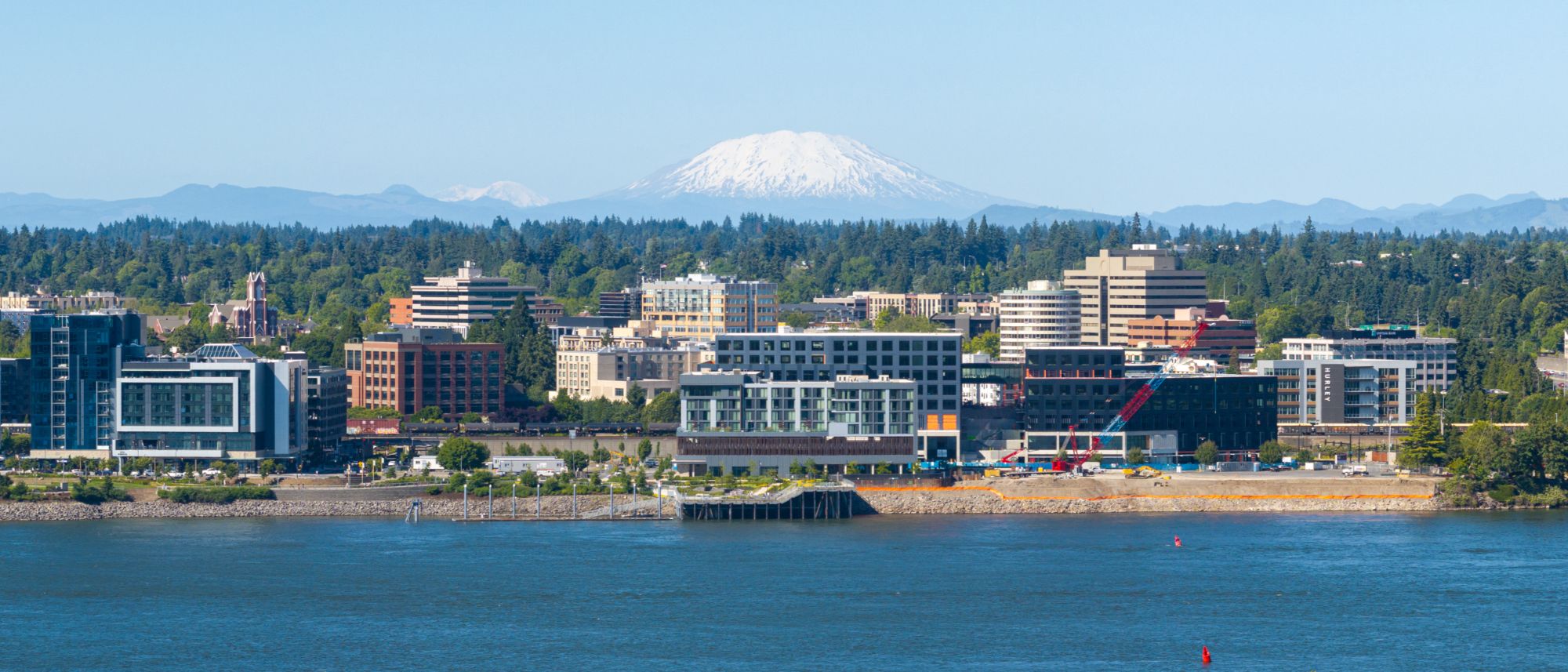
-
Affordability: Lower Cost of Living in Vancouver, Washington
One of the biggest advantages of living in Vancouver, Washington, is its overall affordability—especially when compared to Portland, Oregon. The cost of living in Vancouver WA is significantly lower, particularly in terms of housing prices, property taxes, and state income tax (or lack thereof). In fact, one of the top reasons people choose Vancouver over Portland is because Washington has no state income tax, allowing residents to keep more of their paycheck.
When comparing Vancouver Washington vs Portland Oregon housing costs, Vancouver often comes out on top. Homebuyers and renters can find more affordable housing options—especially in suburban neighborhoods like Salmon Creek, Orchards, and Felida—without sacrificing quality of life or access to urban amenities.
If you're looking for affordable places to live near Portland, Vancouver offers a compelling alternative. Many residents enjoy the benefit of living in Washington but working in Portland, although more remote and hybrid workers are choosing Vancouver as their home base to maximize tax savings and reduce expenses.
Overall, Vancouver’s affordability makes it especially appealing for first-time homebuyers, young families, and retirees looking to stretch their budget while staying close to the cultural and economic opportunities of the Portland metro area.
-
Rapid Growth: Vancouver, WA’s Expanding Population and Economy
When comparing Washington vs Portland, one of the most notable trends is the rapid growth in Vancouver, Washington. While Portland, Oregon has long been an established urban hub, Vancouver is emerging as one of the fastest-growing cities in the Pacific Northwest. This growth is largely fueled by an influx of new residents—particularly remote workers and professionals relocating from more expensive states like California, Oregon, and even New York—seeking the financial advantages of living in Washington.
Vancouver’s appeal lies in its ideal location just across the Columbia River from Portland, combined with tax-friendly policies, a lower cost of living, and a growing number of new housing developments and master-planned communities. Suburbs like Ridgefield, Brush Prairie, and Camas are booming, offering modern homes, high-rated schools, and scenic outdoor spaces.
In fact, real estate trends show strong demand for homes for sale in Vancouver WA, with builders racing to keep up with interest from both in-state and out-of-state buyers. New retail centers, healthcare facilities, and recreational areas are emerging to support the growing population.
If you're searching for a thriving community with economic potential, Vancouver's growth trajectory offers exciting opportunities. It's a great place to invest in real estate, launch a small business, or simply enjoy a city that's on the rise—without the challenges of a larger metro like Portland.
-
Beautiful Environment: Embrace Nature in Vancouver, WA
When it comes to natural beauty, Vancouver, Washington, offers a stunning environment that rivals many cities in the Pacific Northwest. Nestled between the majestic Cascade Mountains, lush forests, and the scenic Columbia River, Vancouver is an outdoor lover’s paradise. Whether you enjoy hiking, kayaking, fishing, or simply immersing yourself in nature, this city provides endless opportunities for outdoor recreation, making it an appealing destination for both locals and newcomers.
Outdoor Recreation Opportunities in Vancouver, WA
Vancouver residents are just a short drive from world-class hiking trails, skiing resorts, and fishing spots, making the city an ideal base for those who love to explore the outdoors. Hiking enthusiasts will appreciate nearby parks like Vancouver Lake Regional Park, Fort Vancouver National Historic Site, and Mount St. Helens National Volcanic Monument, offering trails that cater to all levels of experience. The Columbia River Gorge, with its iconic waterfalls and vistas, is also a popular location for scenic hikes and wildlife watching.
For those who love water-based activities, the Columbia River itself offers incredible opportunities for boating, fishing, and even windsurfing, especially in areas like The Dalles or Cascade Locks. In the winter, nearby mountain resorts such as Mount Hood offer opportunities for skiing and snowboarding, making Vancouver an ideal location for year-round outdoor enthusiasts.
Abundant Parks and Green Spaces
Vancouver is dedicated to providing residents with green spaces that are perfect for relaxation and family activities. The city's parks, like Esther Short Park, David Douglas Park, and Leverich Park, offer peaceful retreats for walking, picnicking, and outdoor events. Vancouver’s green spaces and recreational areas also contribute to its overall quality of life, offering a serene balance between urban development and natural beauty.
Ideal for Nature Lovers and Adventure Seekers
Living in Vancouver, WA, means you're surrounded by some of the most breathtaking landscapes in the Pacific Northwest. Whether you enjoy hiking along the Columbia River Gorge, fishing in the local rivers, or skiing in the mountains, Vancouver offers something for every outdoor enthusiast. Nature lovers and adventure seekers alike will find endless ways to explore the area’s diverse ecosystems while enjoying the beauty of each season.
For those who prioritize green living and sustainability, Vancouver is also home to initiatives focused on environmental preservation and outdoor accessibility. This makes the city a great choice for eco-conscious residents and anyone looking to balance a modern lifestyle with a deep connection to nature.
-
Popular Areas to Live in Vancouver, WA: Top Neighborhoods for Families and Professionals
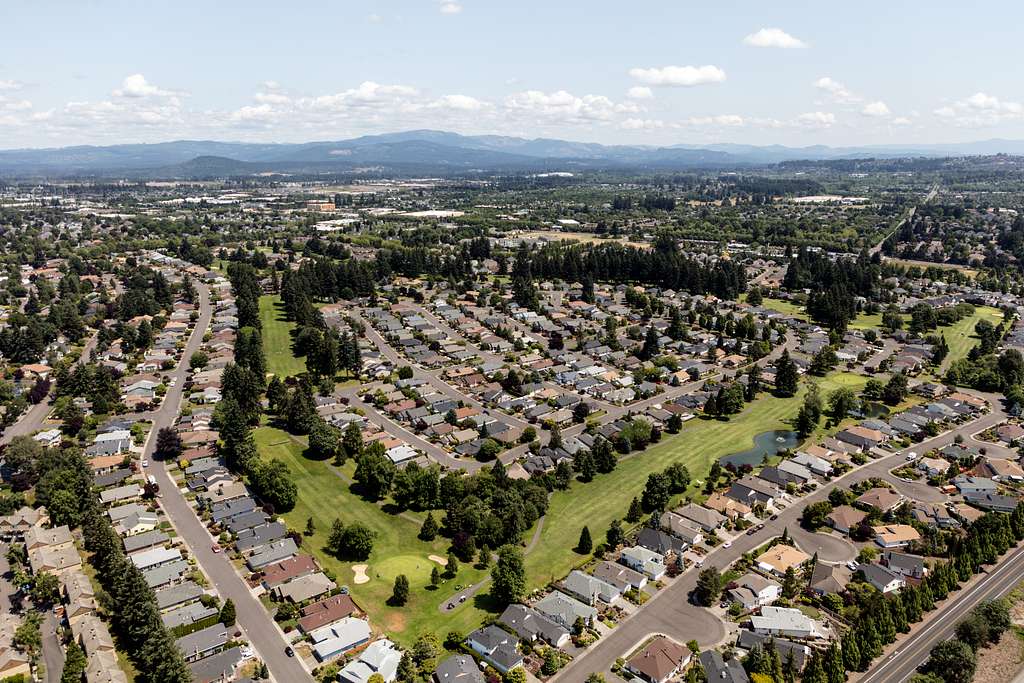
When deciding where to live in Vancouver, Washington, it's important to consider the neighborhood's unique characteristics—such as scenery, affordability, and proximity to schools, parks, and amenities. Vancouver boasts several highly desirable areas that appeal to a wide range of people, from young professionals to families looking for a safe, quiet place to call home. In this section, we'll explore some of the most popular neighborhoods in Vancouver, including Felida, Salmon Creek, and Camas. These areas are known for their beautiful surroundings, excellent schools, and affordable housing options.
1. Felida: Peaceful Living with a Suburban Feel
Located in the northern part of Vancouver, Felida offers a quiet, suburban atmosphere that appeals to families and individuals looking for a peaceful neighborhood away from the hustle and bustle of the city center. Known for its lush greenery and tree-lined streets, Felida is perfect for those who appreciate nature while still being within reach of city conveniences.
Felida’s real estate is mainly made up of single-family homes, with many properties offering spacious lots and backyards. This makes it a prime choice for people looking to have more space without the high price tag of larger cities. The Felida area is also home to several parks and recreational areas, including Felida Park and Camas Meadows, making it a great location for outdoor activities and family outings.
2. Salmon Creek: A Thriving Suburban Community
Salmon Creek is a well-established, family-friendly neighborhood located in the northern part of Vancouver, close to Washington State University Vancouver and the Salmon Creek Greenway. It offers a balance of affordable housing and easy access to nature, making it a popular choice for both families and young professionals.
The neighborhood features a variety of housing options, including spacious single-family homes and newer townhomes. The area is known for its excellent public schools, including Salmon Creek Elementary and Prairie High School, which are highly rated in the district. Additionally, Salmon Creek offers a mix of local restaurants, shopping centers, and convenient transportation options, making it an attractive choice for those looking for both comfort and convenience.
3. Camas: A Charming Small Town with Big City Amenities
Camas is a picturesque city just to the east of Vancouver, known for its quaint, small-town charm and proximity to Portland, Oregon. Although technically its own city, Camas is often considered a part of the greater Vancouver metro area due to its close proximity. The city is set against a backdrop of rolling hills, forests, and the Washougal River, offering residents a serene escape while being just a short drive from downtown Vancouver and Portland.
Camas features a variety of newer homes, many of which boast modern designs and luxurious finishes. The city’s well-regarded public schools, such as Camas High School and Skyridge Middle School, attract families who prioritize education. Camas Meadows Golf Club and Camas Town Square offer plenty of recreational and social opportunities, while downtown Camas boasts charming boutiques, cafes, and restaurants, making it a fantastic spot to spend weekends and evenings. For those looking for a bit of history, Camas’ historic district provides a unique blend of old-world charm and modern amenities.
4. Other Notable Neighborhoods in Vancouver, WA
In addition to Felida, Salmon Creek, and Camas, there are several other fantastic neighborhoods in Vancouver, each offering a unique blend of characteristics:
-
Hough: Located close to downtown, Hough is a historic neighborhood known for its beautiful, older homes and tree-lined streets. It's ideal for those who want to live close to city amenities while enjoying a more charming, established atmosphere.
-
Hazel Dell: Situated just north of downtown Vancouver, Hazel Dell is a growing community with plenty of affordable housing options, including single-family homes, apartments, and townhouses. It’s perfect for first-time homebuyers or those looking for budget-friendly living in the area.
-
Cascade Park: For those seeking a more suburban feel with access to major highways, Cascade Park offers a family-friendly environment with great schools, parks, and shopping centers. It’s a prime spot for families looking to enjoy outdoor activities and an active lifestyle.
What to Expect from Vancouver’s Housing Market
Overall, Vancouver’s housing market is competitive, but it remains more affordable compared to nearby Portland. With a range of neighborhoods offering a variety of housing options, from new developments to charming older homes, Vancouver is an excellent choice for those who want to enjoy the perks of Pacific Northwest living without the steep prices of Portland.
Whether you're drawn to the peaceful suburban feel of Felida, the growing community of Salmon Creek, or the small-town charm of Camas, you'll find something to suit your needs in Vancouver’s diverse neighborhoods.
Disadvantages of Vancouver, Washington
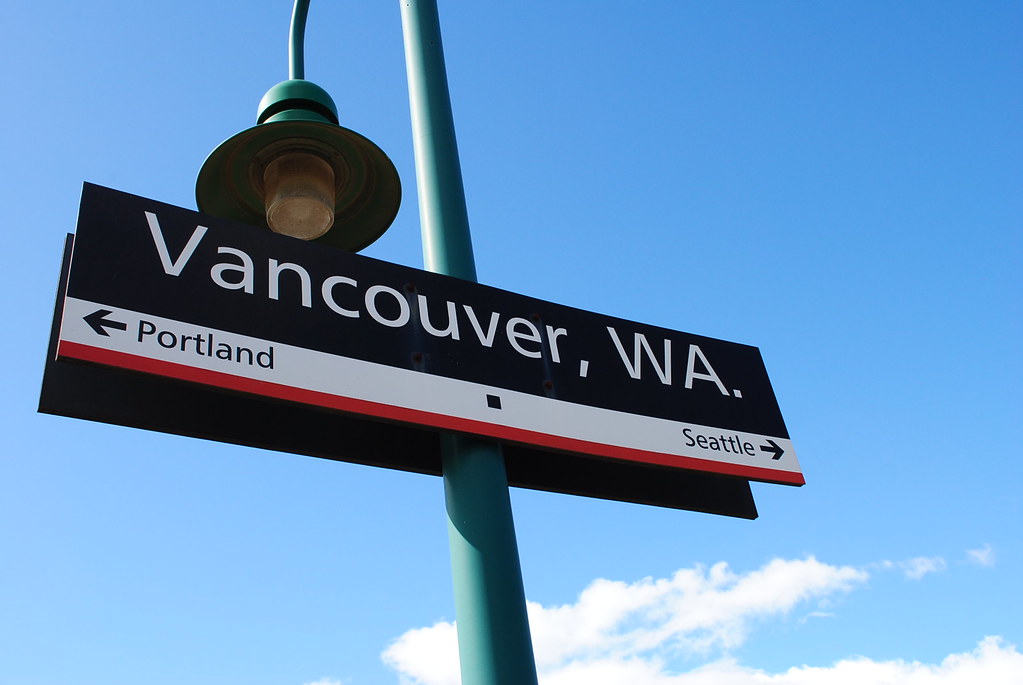
-
Limited Job Market
One of the most significant disadvantages of living in Vancouver, WA, is the relatively limited job market compared to Portland, Oregon. While Vancouver is a growing city with a steadily increasing population, its job market hasn’t quite kept up with the rapid growth. Since Vancouver is a smaller city than Portland, there are fewer large employers and corporate headquarters in the area, which can make job hunting a bit more competitive.
However, for remote workers or those in fields that can be done virtually, the limited job market may not be a dealbreaker. Many people who live in Vancouver work remotely or commute to Portland for employment opportunities. If you’re comfortable with commuting across the Columbia River or telecommuting, you may find the limited job market in Vancouver isn’t much of an obstacle.
Some of the industries with the most job opportunities in Vancouver include healthcare, education, construction, and technology. While Portland offers a broader range of job sectors like finance, marketing, and arts and entertainment, Vancouver’s proximity to Portland makes it relatively easy for residents to tap into the larger job pool in Oregon.
-
Traffic Congestion
Another disadvantage of living in Vancouver is the traffic congestion, particularly during rush hour. Although Vancouver has a growing infrastructure, it is not quite as well equipped as Portland to handle the influx of new residents. The traffic issues in Vancouver are primarily caused by the limited number of crossings over the Columbia River between Vancouver and Portland. With only two bridges (the Interstate 5 and Interstate 205 bridges) connecting the two cities, traffic flow can become a major bottleneck, especially during peak commuting hours.
For those working in Portland or needing to travel to the Oregon side of the river for entertainment, dining, or shopping, this can lead to longer commute times and significant delays. While Vancouver residents may enjoy a more relaxed, suburban lifestyle, the lack of infrastructure to support the growing population can result in frustrating commutes.
For instance, during rush hours, traffic on the bridges can become congested, leading to long waits and delays for drivers. Additionally, construction and maintenance projects on the bridges can sometimes further exacerbate the situation. This can be particularly challenging for those who rely on the bridges for daily commuting or travel.
In response to the growing congestion, both local governments and private developers are exploring solutions to ease the strain. For example, I-5 Bridge Replacement discussions have been ongoing to explore the possibility of adding new lanes or creating additional crossings to improve traffic flow. However, it’s likely to be years before significant changes are made.
Overcoming the Challenges of Vancouver's Job Market and Traffic
While the limited job market and traffic congestion are significant considerations when deciding to live in Vancouver, many people find ways to work around these challenges. As mentioned, remote work has become a viable option for many residents, allowing them to avoid the stress of daily commutes entirely. Additionally, investing in a home in a neighborhood with convenient access to bridges or public transportation can help mitigate some of the frustrations of commuting.
Moreover, Vancouver’s proximity to Portland still provides access to a broader range of career opportunities, dining, shopping, and entertainment options, making it an attractive place to call home despite these drawbacks.
Advantages of Portland, Oregon
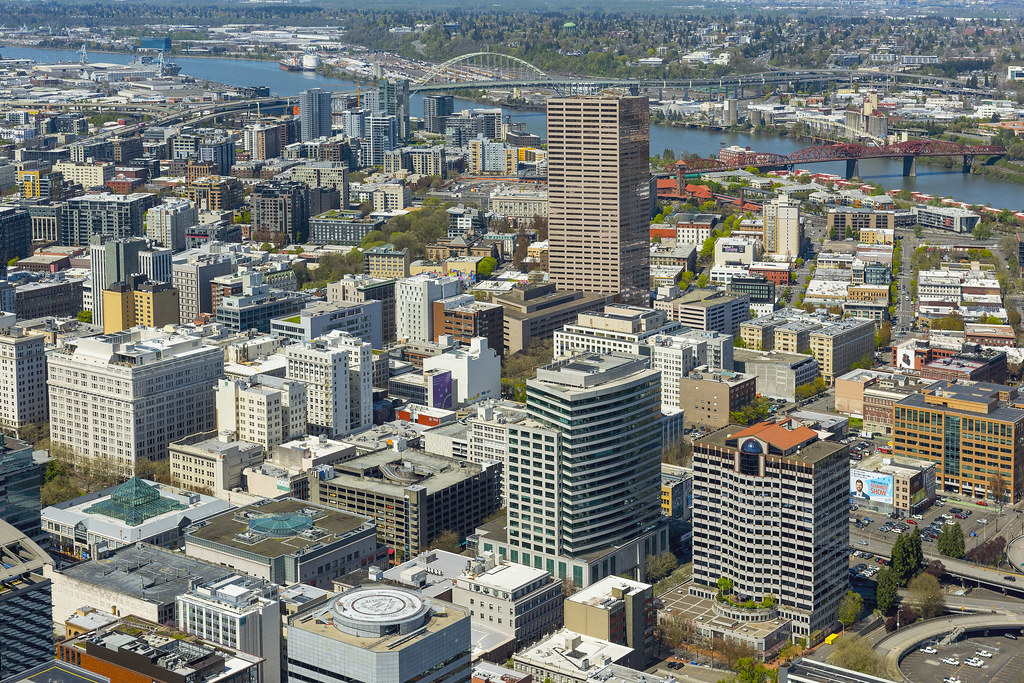
-
Thriving Job Market
One of the top advantages of living in Portland, Oregon, is the thriving job market. Portland is a hub for several major corporations, including Nike, Intel, Columbia Sportswear, and Vestas, making it an attractive destination for professionals across a wide range of industries. Whether you’re interested in tech, manufacturing, marketing, or finance, Portland's economy offers many opportunities for growth and career development.
Portland is often referred to as the “Silicon Forest” due to its large number of technology companies. If you’re in the tech industry, you'll find a strong presence of companies offering jobs in software development, engineering, data science, and IT management. Additionally, Portland's economy is supported by a diverse range of industries such as healthcare, education, sustainability, and arts and entertainment. This diverse economy helps to cushion the impact of economic downturns, making Portland a relatively stable job market.
For young professionals and those seeking career advancement, Portland's job market offers plenty of opportunities. Portland's focus on sustainability and the green economy also attracts people interested in environmental jobs or sustainable business practices, such as green building design or eco-friendly transportation.
-
Cultural Scene
Another key advantage of living in Portland is its vibrant cultural scene. Known for its artistic community and eclectic vibe, Portland offers a rich variety of cultural experiences, making it an exciting city to live in.
Whether you’re into live music, art galleries, street art, or theater, Portland has something for everyone. The city boasts a thriving music scene that spans genres, from indie rock and jazz to electronic and classical music. The Portland Jazz Festival and Portland Rose Festival are just two of the many events that attract visitors and locals alike to experience world-class performances. Art lovers will appreciate Portland’s numerous art galleries, including the Portland Art Museum, and First Thursday art walks, where local artists showcase their work.
In addition to its music and art, Portland has a vibrant food scene that draws inspiration from diverse cultural backgrounds. From farm-to-table dining to the famous food cart culture, Portland is a foodie's paradise. You'll find incredible restaurants offering everything from sustainable seafood to vegan cuisine, and the city is well-known for its craft beer scene, with dozens of microbreweries producing world-class brews.
Portland’s vibrant nightlife adds to its appeal, with numerous bars, cocktail lounges, and clubs offering entertainment for night owls. Whether you prefer a quiet evening in a local brewery or a lively night out on the town, Portland’s cultural and entertainment offerings are diverse and ever-growing.
3. Public Transportation
Living in Portland offers the benefit of a comprehensive public transportation system. If you're someone who prefers not to rely on a car or would like to reduce transportation costs, Portland's light rail, bus system, and streetcar network provide efficient and accessible ways to get around the city. With TriMet overseeing much of the public transportation in Portland, residents can easily travel from one part of the city to another without the hassle of parking or traffic.
Portland’s MAX Light Rail is an affordable and convenient option for commuters, with routes that connect the city to the Portland International Airport, suburbs, and even the Oregon Zoo. The bus and streetcar networks complement the light rail system, providing additional flexibility for those traveling short distances or to areas that are less accessible by light rail.
For eco-conscious residents, Portland's public transportation system supports sustainability. It encourages reducing carbon footprints by making it easier for people to walk, bike, or use public transit instead of driving, which helps reduce traffic congestion and improves air quality. If you're new to the city, you'll quickly find that getting around Portland without a car is both feasible and convenient.
With the city’s focus on green initiatives and public transportation, it’s no wonder Portland is considered one of the most walkable cities in the U.S.. The combination of efficient public transit and walkability makes Portland a great place for those who prefer not to deal with the headaches of owning a car.
Disadvantages of Portland, Oregon
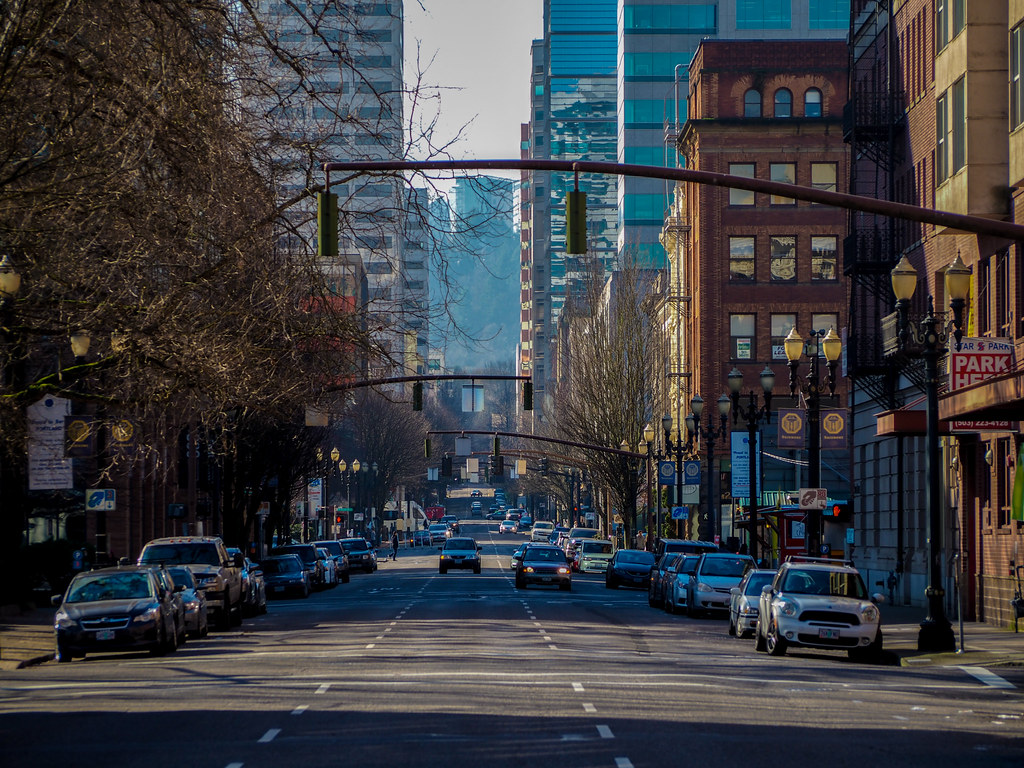
-
High Cost of Living
One of the most frequently cited disadvantages of living in Portland, Oregon, is its high cost of living. Compared to nearby Vancouver, Washington, housing costs in Portland are significantly higher. According to recent housing market data, Portland's median home price is well above the national average and continues to rise due to limited housing supply and strong demand.
Not only is housing more expensive, but residents must also factor in Oregon’s state income tax, which can make a noticeable difference in take-home pay. Unlike Washington, which has no income tax, Oregon taxes both residents and non-residents who work within the state. This means if you live and work in Portland, your paycheck could be smaller compared to someone working across the river in Vancouver.
Additionally, groceries, utilities, and general expenses tend to be higher in Portland than in many parts of Washington, making it a less affordable option—especially for families or first-time homebuyers trying to stretch their budgets.
-
Traffic Congestion
Portland traffic problems have become a growing concern in recent years, especially during peak commuting hours. As the city’s population grows and its infrastructure struggles to keep up, congestion on major routes like I-5, I-84, and Highway 26 has become a daily reality for many residents.
Unlike some larger metropolitan areas, Portland doesn’t have an extensive network of highways crisscrossing the city, which can create traffic bottlenecks and long commute times. Additionally, the city’s dedication to sustainability—while commendable—sometimes prioritizes bikes and pedestrian access over vehicle traffic, contributing to limited road expansion and frequent delays.
Another point to consider is the limited parking availability, especially in the downtown core and popular neighborhoods. Portland's urban planning approach encourages density and walkability, but that often comes at the cost of scarce and expensive parking options.
If you’re someone who needs to drive to work or travel regularly by car, traffic congestion in Portland could be a significant drawback.
-
Urban Growth Boundary
Portland’s Urban Growth Boundary (UGB) is a land-use planning tool designed to curb urban sprawl and protect surrounding farmland and natural spaces. While it’s a model admired by urban planners for encouraging sustainability and walkability, the UGB in Portland also has some trade-offs.
The boundary limits how far the city can expand outward, which has led to increased population density, rising real estate prices, and less available land for new development. This can make finding housing more difficult and expensive, especially for those looking for larger properties or new construction homes.
While some residents appreciate the compact, city-centric lifestyle, others find the limited expansion frustrating—particularly when combined with already rising home prices and crowded neighborhoods. If you're considering living in Portland but value space, affordability, and new housing developments, this may influence your decision.
SEO Keywords Used: urban growth boundary Portland, Portland development limits, Portland housing shortage, Portland zoning and planning.
Final Thoughts: Washington vs Portland
Choosing between Vancouver, Washington, and Portland, Oregon, depends on your priorities. If affordability, lower taxes, and a suburban lifestyle appeal to you, Vancouver may be the better choice. Conversely, if a dynamic job market, cultural richness, and urban living are your preferences, Portland could be the ideal fit.
Consider your career goals, lifestyle preferences, and financial situation when making this decision. Both cities offer unique advantages, making the Pacific Northwest a desirable region to call home.
In the end, whether you choose to live in Vancouver, Washington, or Portland, Oregon, depends on your personal preferences and priorities. Vancouver offers affordability, natural beauty, and a growing community, while Portland boasts a thriving job market, a vibrant cultural scene, and a focus on sustainability. Consider factors such as cost of living, job opportunities, lifestyle, and commute times when making your decision. To ensure you make the best choice, reach out to a local real estate expert who can guide you based on your specific needs. Good luck with your decision, and welcome to the Pacific Northwest!
Sign up for my monthly newsletter to receive expert advice, important local updates, and insider knowledge on the best ways to thrive in this unique region. Whether you're buying, selling, or simply curious about life in the Pacific Northwest, I've got you covered.
👉 Join my newsletter today and never miss a beat! Just enter your email below and get exclusive access to all things Southwest Washington. Let’s stay connected!
Categories
Recent Posts

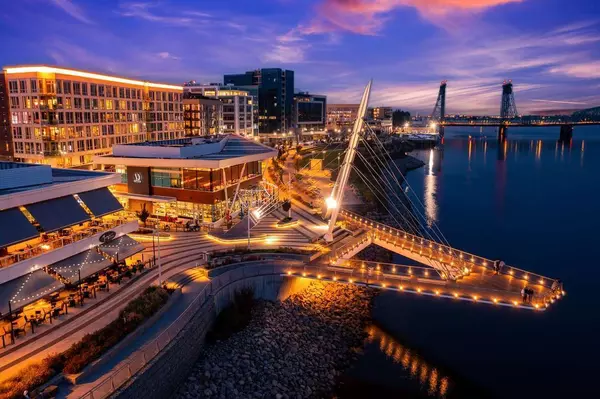

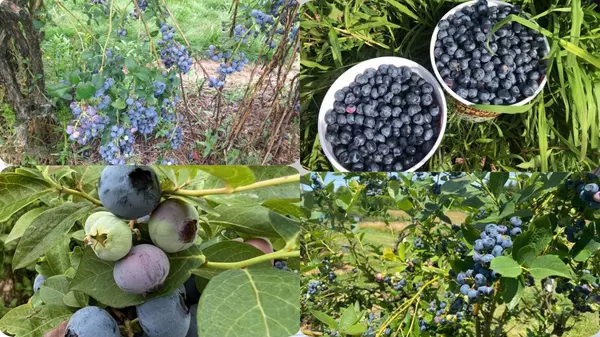
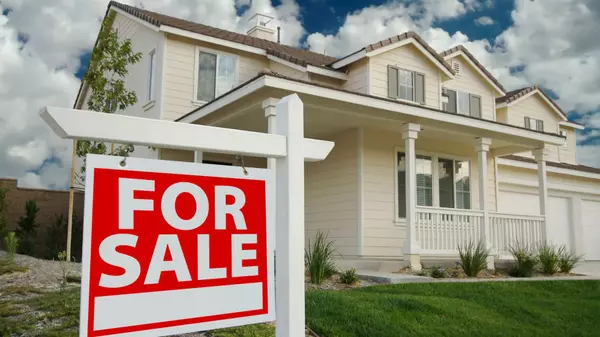


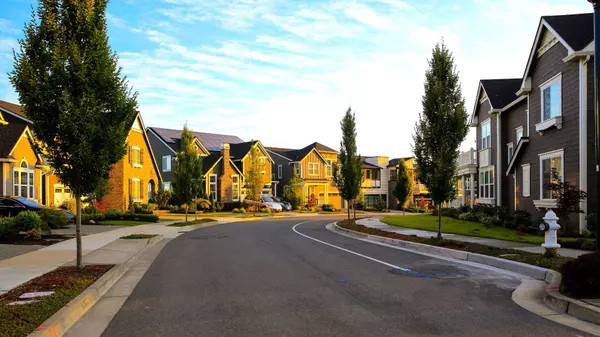
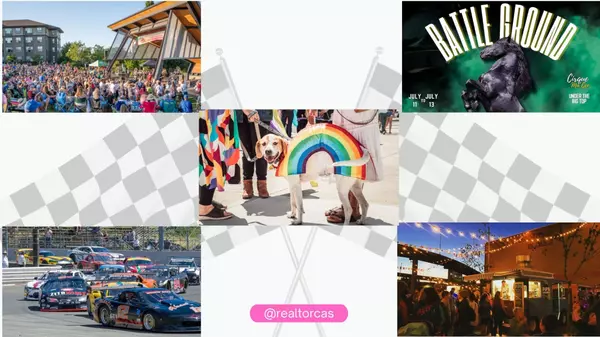
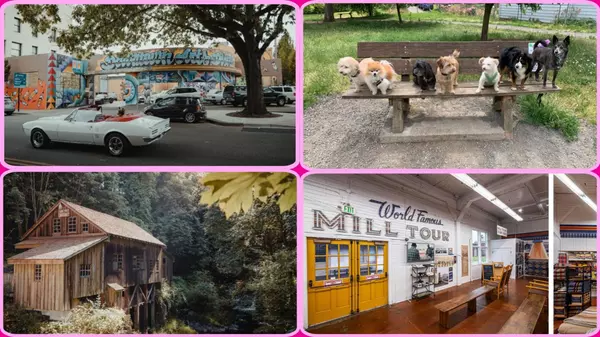
GET MORE INFORMATION
Cassandra Marks
Realtor, Licensed in OR & WA | License ID: 201225764
Realtor, Licensed in OR & WA License ID: 201225764
